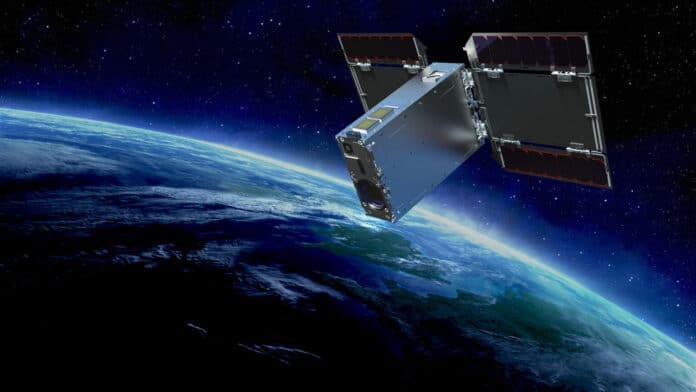In recent years, environmental problems occurring on a global scale have become more serious. Many countries around the world have committed to a net zero emissions target by 2050. An increasing number of companies are also working to reduce environmental impact and handling costs by adopting greener propellants in the space industry.
One of these companies is a Japanese propulsion company called Pale Blue, which tackles environmental issues and growing demand by providing safe, sustainable, and low-cost propulsion systems that use water as a propellant. The company is set to test its system on a Sony nanosatellite launched earlier this month.
Sony chose Pale Blue to provide a water-based propulsion system for a nanosatellite of its STAR SPHERE Project. This project aims to open up and deliver experiences that have previously been exclusive to astronauts through the power of technology and entertainment. It will offer still images and 4K video of space for artistic and educational use and provide “space perspectives.”
On January 3rd, 2023, the project’s nanosatellite was launched along with 113 other satellites atop a Falcon 9 rocket as part of the SpaceX rideshare mission Transporter 6. The CubeSat, currently in orbit, is named STAR SPHERE-1 and carries a full-frame camera. It is also equipped with a Pale Blue water vapor propulsion system, allowing for Pale Blue’s first in-space demonstration of its technology.
According to Pale Blue, the small thruster will enter and maintain the orbit of the satellite, which will fly in Low Earth Orbit at an altitude of 500 km to 600 km. Leveraging its technology, the water propulsion system will prolong the satellite’s life by 2.5 years.
“I am sure that STAR SPHERE, which enables everyone to discover perspectives from space and gain new inspiring experiences, is an unprecedented new use of space and a project with the potential to grow the space industry itself in a discontinuous manner,” said Jun Asakawa, CEO and Co-Founder of Pale Blue. “I am very pleased that our safe, sustainable, and low-cost water thruster can contribute to this project, and we are committed to the development of the space industry.”
The Pale Blue company was established in 2020. It develops a variety of water propulsion systems based on the results of research conducted by the Japanese space agency JAXA and the University of Tokyo.
